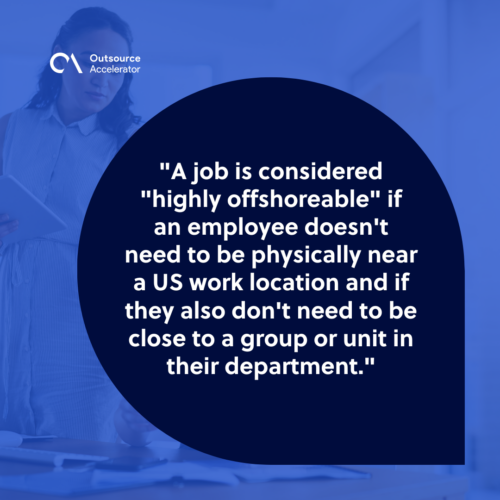From metaverse to dead CEO resurrection, we guarantee you this week’s Gone Global is anything but boring. We’re here for your weekly future-of-work kick.
‘Remote Work Will Leave Americans Jobless in 10 years’
The severe headlines announce the predicament:
⇨ New York Post: ‘Be very scared’: Remote work could cost Americans their jobs within decade, experts say
⇨ Fortune: Remote work could be the reason you don’t have a job in 10 years
‘Experts’ have now awoken to the fact that if staff can work from home – employers will eventually hire from overseas instead.
Afterall, why pay a New York salary when you can hire someone from India or elsewhere for 5%-30% of the cost?
Be afraid, be very afraid
In the words of Richard Baldwin, an economics professor at the Graduate Institute in Geneva, Switzerland. “If you can do your job from home, be scared. Be very scared,” Baldwin said in November. “Because somebody in India or wherever is willing to do it for much less.”
People commonly associate offshoring with lower skilled roles and call center functions, but this is far from reality.
MIT assistant professor Anna Stansbury told Fortune, “If people that code for Google and Facebook were able to live wherever in the US they wanted and [work] for a year and a half without ever going to the office, it seems very, very likely that a lot of companies will be rethinking this longer-term and outsourcing those kinds of jobs that didn’t used to be outsourced.”
Last year, Baldwin and his research partner, Jonathan Dingel, authored a paper titled “Telemigration and Development: On the Offshoreability of Teleworkable Jobs.” They categorized jobs into four groups — “highly offshoreable,” “offshoreable,” “hard to offshore” and “non-offshoreable.”

A job is considered “highly offshoreable” if an employee doesn’t need to be physically near a US work location and if they also don’t need to be close to a group or unit in their department.
According to this definition, most high-tech and white-collar jobs can be done from home, which is borne out in the current work-from-home movement. And work-from home is ultimately synonymous with offshore.
And if you think that you can’t find ‘good people’ in these places, you are severely mistaken. India and the Philippines alone have a combined population of 1.5 billion people and produce 18 million graduates each year!
The global paradigm
The world is finally awakening to the reality that Remote-work is a gateway to global employment.
Some companies have been taking advantage of this global strategy for 30+ years. Others are just waking up to that opportunity now.
I firmly believe that in 10-15 years, 85% of businesses will hire staff globally, not locally. And they will be hiring people based on competency, productivity, and cost – and not based on where they are sitting.
The question for your business:
Are you hiring work-from-home staff, but limiting your search and selection to your local geography?

 Independent
Independent





















